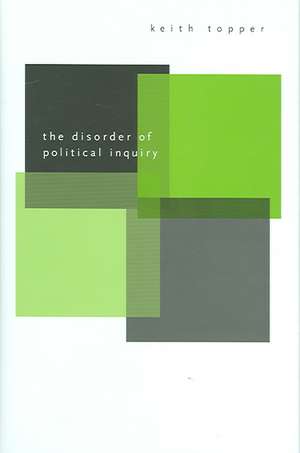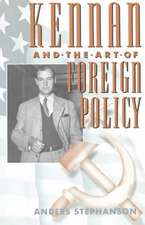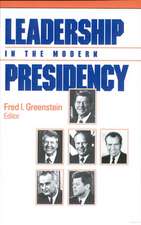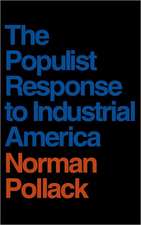The Disorder of Political Inquiry
Autor Keith Topperen Limba Engleză Hardback – 13 iun 2005
Engaging the work of thinkers such as Richard Rorty, Charles Taylor, Pierre Bourdieu, Roy Bhaskar, and Hannah Arendt, as well as recent literature in political science and the history and philosophy of science, Topper proposes a pluralist, normative, and broadly pragmatist conception of political inquiry, one that is analytically rigorous yet alive to the notorious vagaries, idiosyncrasies, and messy uncertainties of political life.
Preț: 461.99 lei
Preț vechi: 599.98 lei
-23% Nou
Puncte Express: 693
Preț estimativ în valută:
88.43€ • 92.90$ • 74.32£
88.43€ • 92.90$ • 74.32£
Carte tipărită la comandă
Livrare economică 12-26 martie
Preluare comenzi: 021 569.72.76
Specificații
ISBN-13: 9780674016781
ISBN-10: 0674016785
Pagini: 320
Dimensiuni: 165 x 245 x 23 mm
Greutate: 0.63 kg
Editura: Harvard University Press
ISBN-10: 0674016785
Pagini: 320
Dimensiuni: 165 x 245 x 23 mm
Greutate: 0.63 kg
Editura: Harvard University Press
Descriere
Engaging the work of thinkers such as Rorty, Taylor, Bourdieu, Bhaskar, and Arendt, and literature in political science and history and philosophy of science, Topper proposes a pluralist, normative, and broadly pragmatist conception of political inquiry, one alive to the notorious vagaries, idiosyncrasies, and uncertainties of political life.















